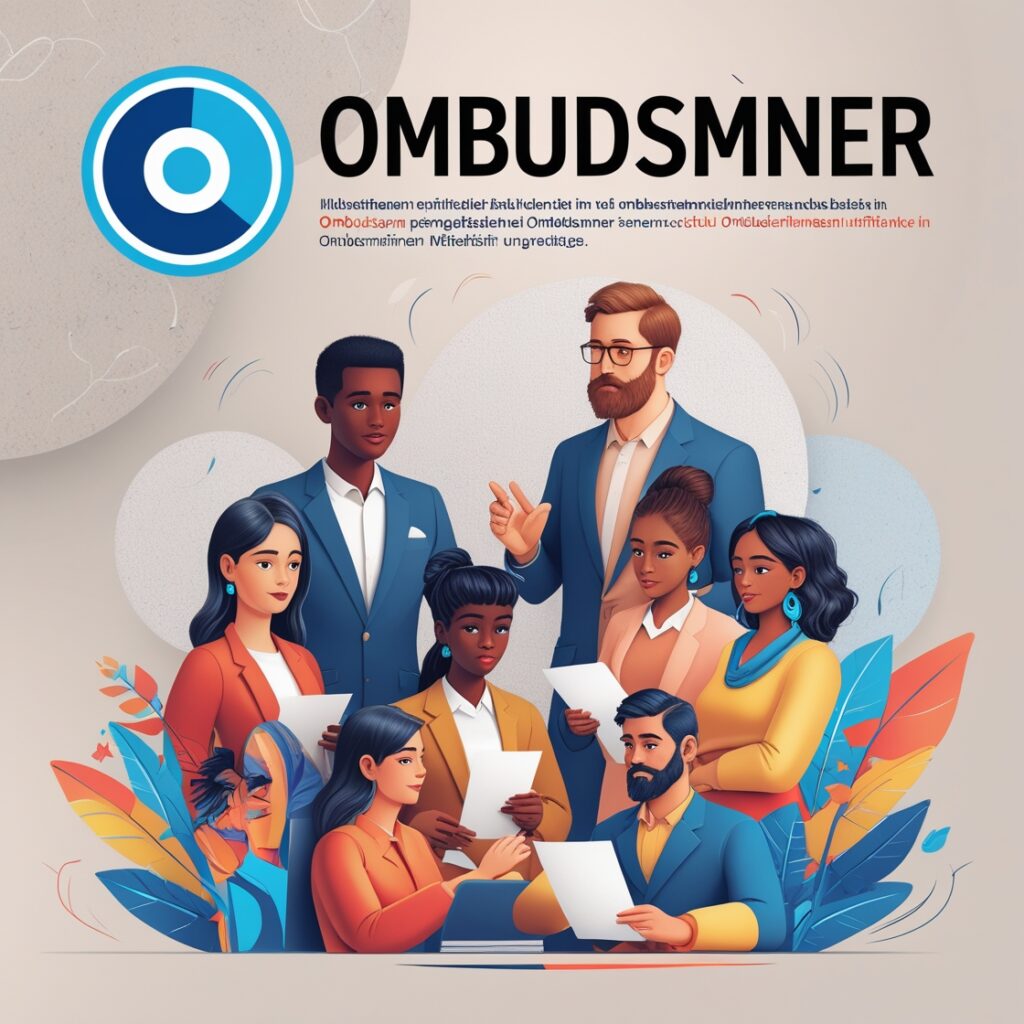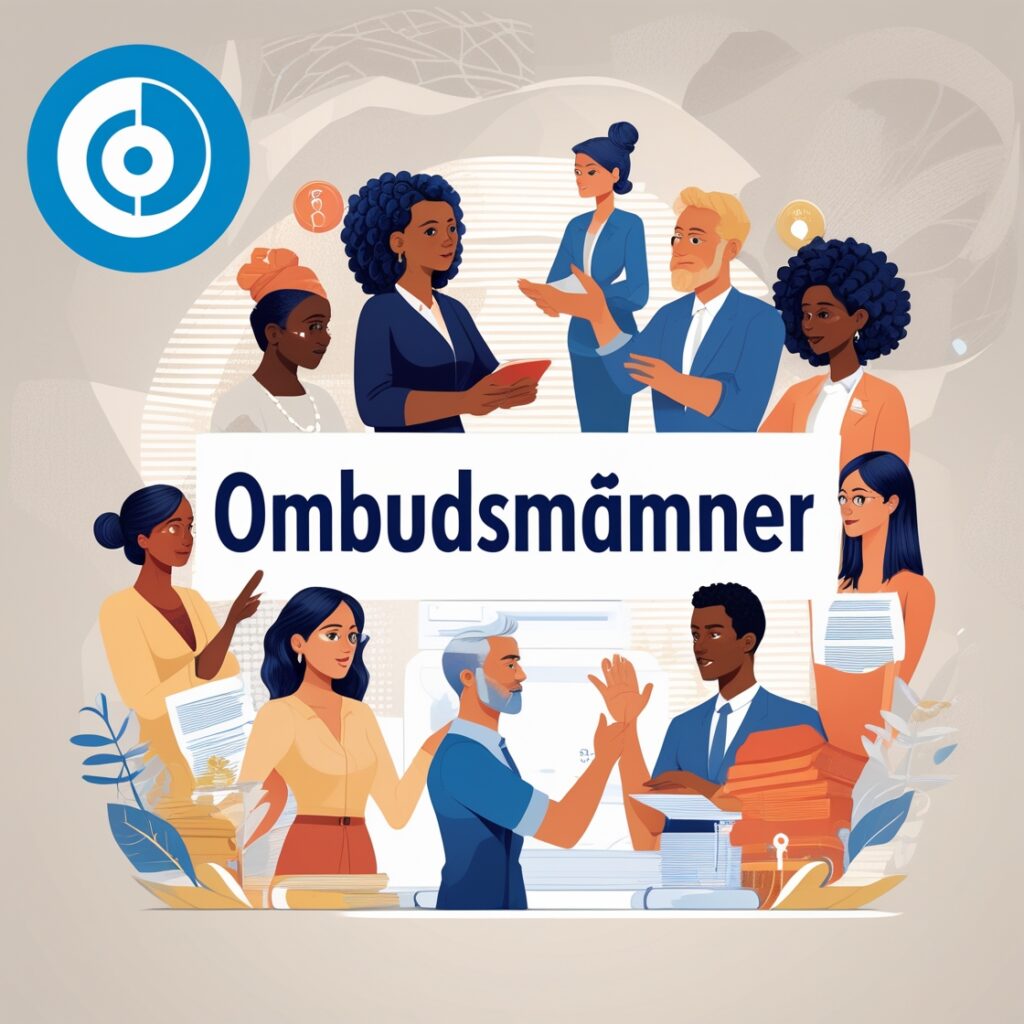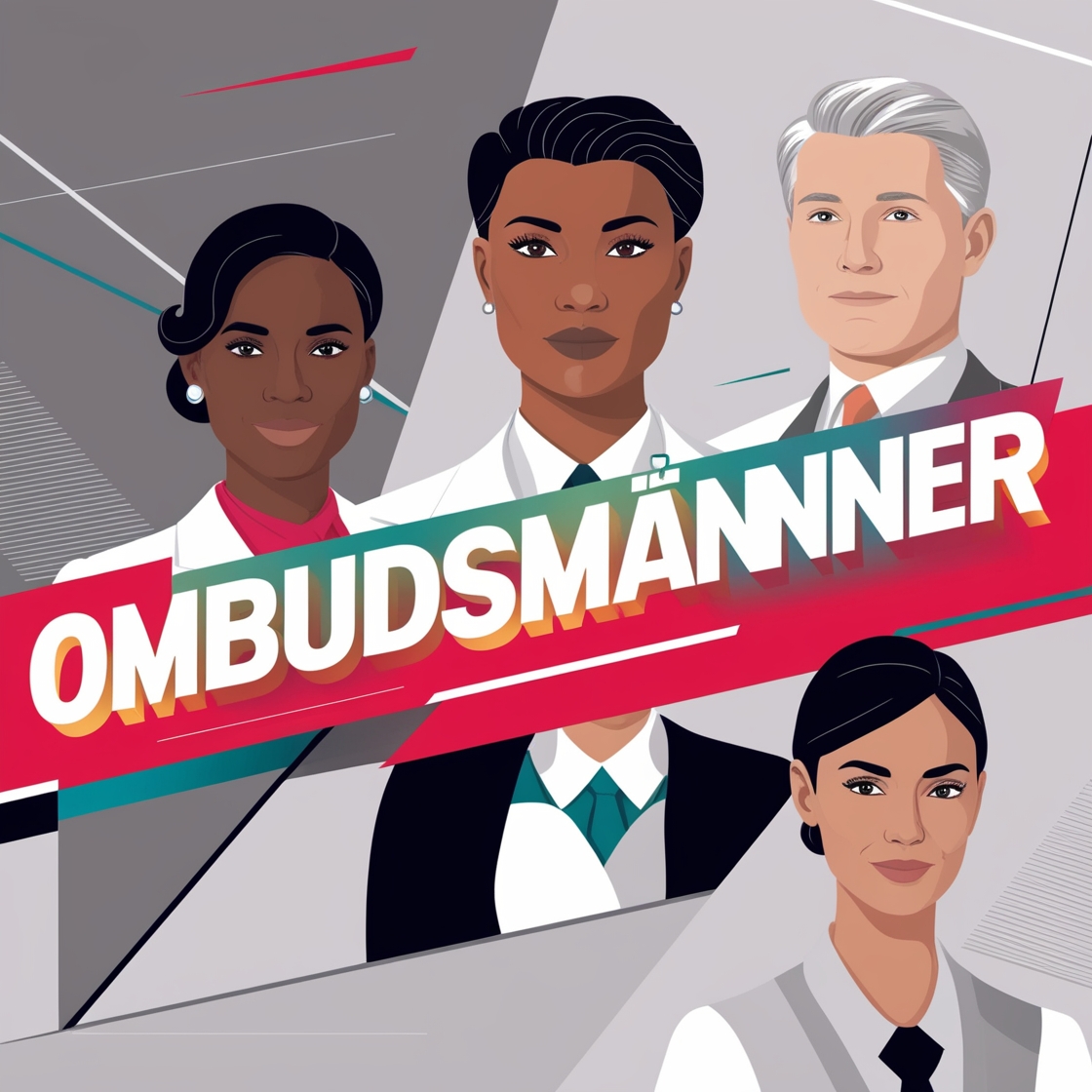Building a place of job culture rooted in receive as proper with, transparency, and fairness is extra vital than ever—and this is in which ombudspersons step in as key members. Acting as neutral 0.33 activities, they help mediate between personnel and leadership, ensuring that character voices are heard and that administrative center problems are handled with integrity and restraint.
While the idea of an Ombudsmänner dates returned centuries, the function has advanced substantially to satisfy the complex stressful conditions of contemporary-day organizational structures. Far from being truly battle resolvers, the ones professionals now play an active position in selling moral practices, improving inner communique, and supporting employee properly-being across a wide type of industries.
In a time while place of job relationships and expectations are constantly shifting, know-how the characteristic and charge of ombudspersons is important. Their presence fosters a more secure and more respectful surroundings, in which worries may be voiced without fear of retaliation.
This article takes a better have a look at the origins and transformation of the ombudsperson’s function, highlights their center responsibilities, and explains why they’re necessary in cultivating balanced, inclusive, and efficient paintings environments.
The Origins and Modern Transformation of the Ombudsperson Role
The position of the ombudsperson has a significant and extensive history, beginning in Sweden in the early 1800s.The first professional parliamentary ombudsman become set up in 1809 with the goal of keeping public officers accountable and safeguarding citizens against misuse of authority or administrative disasters. This early model became extensively reputable for its objectivity and dedication to justice, putting a precedent for similar roles worldwide.
Over time, the concept of the ombudsperson expanded a ways beyond authorities oversight. What started out as a mechanism to display public establishments has evolved into a flexible feature inside a wide variety of settings. Today, ombudspersons are determined in various environments—such as company places of work, instructional institutions, hospitals, financial firms, and worldwide organizations just like the United Nations and the European Union. The position has adapted to meet the converting demands of current systems, wherein transparency, ethics, and truthful remedy are more essential than ever.
Key Responsibilities of Ombudspersons in Contemporary Settings
Ombudspersons fulfill a essential purpose by using appearing as unbiased, non-public assets inside corporations. While their actual duties may additionally moreover variety relying on the business enterprise, their center talents stay consistent and vital:
1. Addressing Complaints with Fairness and Impartiality
One of the number one responsibilities of an ombudsperson is to observe and remedy problems raised via individuals who sense they’ve skilled unfair treatment. These troubles can also involve internal policies, administrative choices, employee family contributors, or interactions with outside bodies. Rather than taking components, ombudspersons acquire statistics objectively, find out possible breaches of conduct or procedural mistakes, and manual all events inside the course of suitable resolutions.
2. Promoting Ethical Conduct
Beyond battle decision, ombudspersons characteristic champions of ethical conduct internal businesses. They encourage a lifestyle wherein open conversation is supported, and people experience secure reporting misconduct, discrimination, or abuse of electricity without worry of retaliation.

3. Recommending Systemic Improvements
In addition to handling man or woman courtroom cases, ombudspersons frequently discover recurring problems that point to broader systemic troubles. They use those insights to advocate coverage adjustments, education obligations, or manner enhancements that decorate the fairness and capability of the entire enterprise.
Understanding the Different Types of Ombudspersons and Their Critical Role in Organizations
Ombudspersons aren’t one-duration-suits-all; they come in various paperwork, every tailored to cope with specific demanding situations within unique environments. Whether running within the public area, non-public groups, or instructional institutions, those experts offer stable, exclusive, and independent useful resource to human beings navigating conflicts or organizational roadblocks. Their position is instrumental in promoting equity, agree with, and responsibility.
See Also : Mariano Iduba Path to Success
1. Organizational Ombudspersons
These ombudspersons are commonly embedded inside agencies, non-income, or institutions, serving as impartial resources for internal group of workers. Employees can approach them with worries associated with administrative center dynamics—consisting of interpersonal disputes, coverage misunderstandings, or ethical dilemmas—without worry of retaliation. Their goal is to resolve issues informally and confidentially via mediation or constructive talk, instead of thru inflexible disciplinary processes.
2. Public Sector Ombudspersons
Serving as watchdogs over authorities operations, public ombudspersons look into complaints from citizens concerning unfair remedy or administrative screw ups within public offerings. Their role is to make sure authorities bodies are held responsible and that public rules are carried out fairly. These ombudspersons frequently operate with a degree of felony authority to look at information, question officials, and endorse upgrades.
3. Academic Ombudspersons
Found in universities and faculties, academic ombudspersons help college students, school, and group of workers in resolving disputes concerning grading, admissions, harassment claims, and academic integrity. They work to uphold equity in instructional regulations and sell inclusive, respectful environments for getting to know and professional increase.
Each class of ombudsperson brings area-unique know-how and techniques, assisting groups feature greater ethically and effectively with the aid of addressing concerns earlier than they evolve into large troubles.
The Legal Backbone: Authority and Framework of Ombudspersons
The authority under which ombudspersons function isn’t arbitrary. Their legitimacy is grounded in felony frameworks that outline their powers, boundaries, and operational independence. These frameworks can stem from countrywide regulation, institutional mandates, or worldwide protocols depending at the jurisdiction or employer.

Legal Empowerment
Typically, ombudspersons are granted the authority to investigate lawsuits, get admission to non-public or restrained information, and offer non-binding or, in a few instances, binding resolutions. This get right of entry to ensures they may be capable of examine situations holistically and quite.
Independence and Impartiality
Legal protections are regularly in location to guarantee the ombudsperson’s autonomy. This lets in them to behave without external stress or internal have an effect on—making sure credibility and impartiality. Individuals bringing forth issues also are commonly covered with the aid of anti-retaliation guidelines, which strengthen accept as true with in the system and encourage transparency.
Quasi-Judicial Capabilities
In positive jurisdictions or regulatory contexts, ombudspersons can be empowered with quasi-judicial authority, permitting them to difficulty choices or guidelines that must be accompanied. This level of authority will have a substantial effect on enhancing institutional duty and coverage enforcement.
Essential Qualities and Skills of an Effective Ombudsperson
Being an ombudsperson is not pretty an awful lot know-how hints—it’s approximately navigating human studies with professionalism and compassion. The satisfactory ombudspersons bring together a mixture of gentle talents, analytical functionality, and moral integrity.
Strong Communication
Clear, empathetic, and respectful communique is high. Ombudspersons ought to be able to articulate complicated troubles, ask the proper questions, and facilitate honest conversations between events in warfare. They are often the bridge that allows rebuild bear in mind in strained relationships.
Empathy and Active Listening
To successfully assist human beings in misery, ombudspersons should pay attention without judgment and make humans experience heard. Empathy permits them to don’t forget multiple views and arrive at equitable resolutions that cope with the needs of everyone worried.
Analytical and Problem-Solving Abilities
Ombudspersons must confirm troubles beyond ground-level symptoms and symptoms. This entails identifying root reasons, evaluating rules, and crafting solutions which can be realistic, sustainable, and truly. Their characteristic frequently calls for a stability of emotional intelligence and crucial thinking.

Impartiality and Confidentiality
Trust is constructed via equity and restraint. Ombudspersons ought to stay impartial—by no means taking aspects—and address all topics with the highest stage of confidentiality. This guarantees that human beings feel safe coming ahead, no matter sensitive or controversial worries.
MCQs:
1. Where did the role of the ombudsperson originate?
A) Germany
B) United States
C) Sweden
D) United Kingdom
✅ Correct Answer: C) Sweden
2. What is the main purpose of an organizational ombudsperson?
A) To handle external lawsuits
B) To enforce company policies
C) To provide employees a safe space to voice concerns
D) To manage public relations
✅ Correct Answer: C) To provide employees a safe space to voice concerns
3. How do academic ombudspersons support institutions?
A) By teaching ethics classes
B) By resolving student and faculty disputes
C) By grading final exams
D) By overseeing research funding
✅ Correct Answer: B) By resolving student and faculty disputes
4. Which of the following is NOT typically a responsibility of ombudspersons?
A) Promoting ethical conduct
B) Investigating complaints
C) Representing individuals in court
D) Recommending systemic improvements
✅ Correct Answer: C) Representing individuals in court
5. What legal protections do ombudspersons often have?
A) Diplomatic immunity
B) Power to arrest
C) Protection from external influence and retaliation
D) Right to change company leadership
✅ Correct Answer: C) Protection from external influence and retaliation
6. Which sector do public ombudspersons primarily serve?
A) Healthcare
B) Private businesses
C) Government and public services
D) Educational institutions
✅ Correct Answer: C) Government and public services
7. What quality is essential for an ombudsperson to maintain trust?
A) Creativity
B) Impartiality
C) Speed
D) Authority
✅ Correct Answer: B) Impartiality
8. In which situation might an ombudsperson have quasi-judicial authority?
A) When handling international sports disputes
B) In some regulatory or legal contexts
C) When leading a non-profit organization
D) During employee recruitment
✅ Correct Answer: B) In some regulatory or legal contexts
9. Why is active listening important for ombudspersons?
A) It speeds up meetings
B) It helps control the conversation
C) It fosters empathy and equitable resolution
D) It helps in drafting new laws
✅ Correct Answer: C) It fosters empathy and equitable resolution
10. What is a common benefit of having an ombudsperson in an organization?
A) Lower tax rates
B) Higher profit margins
C) Enhanced workplace transparency and trust
D) Increased product sales
✅ Correct Answer: C) Enhanced workplace transparency and trust
Summary of the Article: “Ombudsmänner”
The article explores the crucial function of ombudspersons in fostering place of business cultures primarily based on trust, transparency, and equity. Originating in Sweden in 1809 to keep public officers accountable, the function has advanced considerably and now spans numerous sectors which include company, instructional, and public establishments.
Modern ombudspersons act as impartial, independent sources, helping people resolve conflicts confidentially, promoting moral behavior, and recommending systemic improvements. Their paintings encourages a secure environment in which personnel can enhance worries without fear of retaliation.
Read More About Business At Centomagzine

